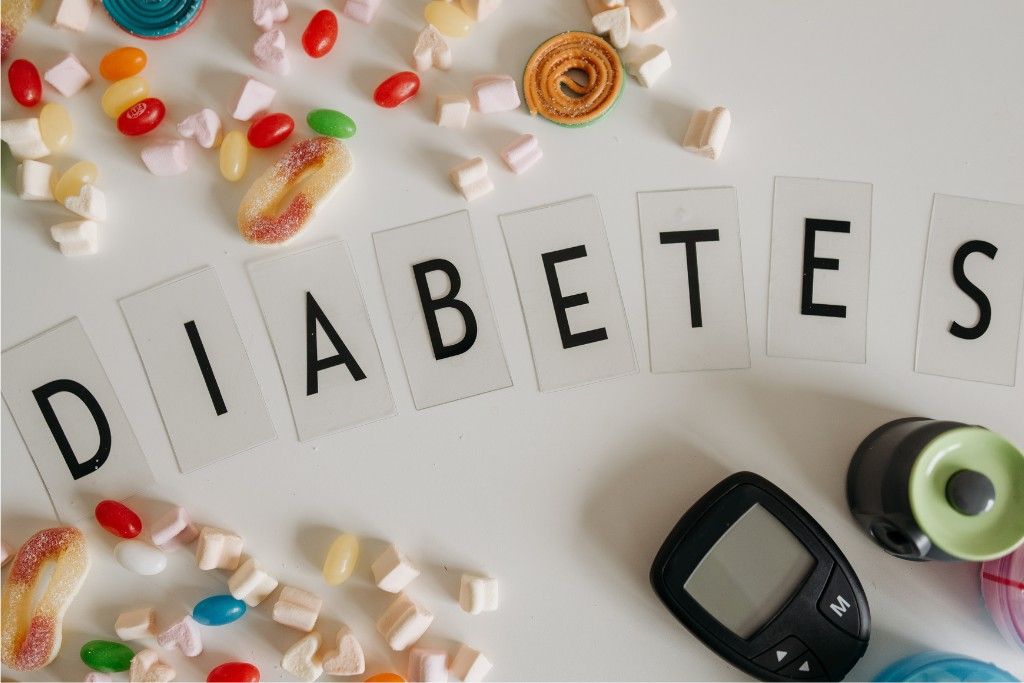
Getting a good night’s sleep is not just about feeling refreshed—it's essential for your overall health, especially your blood sugar levels. In fact, research increasingly shows that poor sleep quality or sleep deprivation can significantly impact glucose metabolism, insulin sensitivity, and diabetes risk. If you’re monitoring your blood sugar or taking a blood test to check your glucose levels, your sleep patterns might be playing a bigger role than you think.
In this blog, we’ll explore how sleep affects blood sugar levels, the science behind it, and what you can do to improve both your sleep and metabolic health.
Understanding Blood Sugar and Its Regulation
Blood sugar, or blood glucose, is the main source of energy for your body. It comes from the food you eat, especially carbohydrates, and is regulated by insulin, a hormone produced by the pancreas. When your body works properly, insulin helps your cells absorb glucose for energy or storage.
However, when blood sugar levels remain high due to poor diet, stress, lack of physical activity—or even lack of sleep—it can lead to insulin resistance or type 2 diabetes.
Regular blood tests such as Fasting Blood Sugar, HbA1c, and Postprandial Glucose Tests help monitor your blood glucose levels and detect abnormalities early.
The Connection Between Sleep and Blood Sugar
1. Sleep Deprivation Increases Insulin Resistance
One of the most significant ways sleep affects blood sugar is by increasing insulin resistance. When you don't get enough sleep, your body's ability to use insulin effectively decreases. This means more glucose stays in your bloodstream instead of entering your cells—leading to higher fasting blood sugar levels.
Even a few nights of poor sleep can start to impact your insulin response. Studies have shown that getting less than 6 hours of sleep per night over several days can lead to prediabetic conditions in otherwise healthy individuals.
2. Sleep and Hormonal Imbalance
Sleep affects hormones that control hunger, stress, and energy metabolism. When sleep is disrupted:
Cortisol (the stress hormone) increases, which raises blood sugar levels.
Ghrelin (hunger hormone) increases, and leptin (satiety hormone) decreases—leading to overeating and weight gain.
These hormonal changes can contribute to poor glucose control and insulin resistance.
This hormonal imbalance explains why people with sleep deprivation tend to crave high-carb, sugary foods, further spiking their blood sugar levels.
3. Impact on the Body’s Internal Clock (Circadian Rhythm)
Your body follows a natural 24-hour cycle called the circadian rhythm, which regulates your sleep-wake cycle and various metabolic processes. Disrupted sleep or irregular sleep patterns (like shift work or frequent travel) can desynchronize this rhythm, negatively affecting glucose metabolism.
When your internal clock is out of sync, the pancreas may not release insulin at optimal times, and cells may not respond to insulin efficiently, leading to elevated blood sugar levels—especially noticeable in morning fasting blood tests.
4. Sleep Apnea and Blood Sugar Spikes
Obstructive Sleep Apnea (OSA) is a condition where breathing repeatedly stops and starts during sleep. It causes sleep fragmentation and oxygen deprivation, both of which are linked to higher blood glucose levels and an increased risk of type 2 diabetes.
People with sleep apnea often have poor glucose control even with medication. Addressing sleep apnea through CPAP therapy or lifestyle changes can improve both sleep and blood sugar control.
What Do Blood Tests Say?
If you suspect that your sleep may be affecting your metabolic health, you should consider getting the following blood tests:
Fasting Blood Sugar (FBS): Measures glucose levels after 8 hours of fasting.
HbA1c: Shows your average blood sugar level over the past 2–3 months.
Oral Glucose Tolerance Test (OGTT): Measures how well your body processes glucose over time.
Insulin Levels: Can help detect insulin resistance early.
If you are experiencing morning fatigue, sugar cravings, or unexplained weight gain, it’s a good idea to consult your doctor and schedule these blood tests.
How to Improve Sleep and Control Blood Sugar
Improving sleep quality can go a long way in managing and even preventing blood sugar problems. Here’s how:
✅ 1. Maintain a Regular Sleep Schedule
Go to bed and wake up at the same time every day, even on weekends. A consistent routine reinforces your natural circadian rhythm.
✅ 2. Limit Caffeine and Sugar Intake Before Bed
Avoid stimulants like caffeine, sugar, and heavy meals in the evening. They can interfere with your ability to fall and stay asleep.
✅ 3. Exercise Regularly
Physical activity helps regulate insulin and blood sugar levels—and improves sleep quality. Aim for at least 30 minutes of moderate exercise daily.
✅ 4. Create a Sleep-Friendly Environment
Keep your bedroom cool, dark, and quiet. Limit screen time before bed to reduce blue light exposure that interferes with melatonin production.
✅ 5. Manage Stress
Practice relaxation techniques like deep breathing, meditation, or yoga to reduce cortisol levels and improve both sleep and blood sugar control.
Who Should Be Concerned?
People with prediabetes or type 2 diabetes
Individuals experiencing chronic sleep issues
Night-shift workers or frequent travelers with irregular sleep
Anyone with a family history of diabetes
Individuals with symptoms like frequent urination, fatigue, or unexplained weight gain
If you fall into any of these categories, talk to your healthcare provider about your sleep patterns and consider getting a blood test to assess your glucose levels.
Final Thoughts
Sleep and blood sugar are deeply interconnected. Chronic sleep deprivation or poor sleep quality can significantly raise your risk for insulin resistance, type 2 diabetes, and other metabolic disorders. Fortunately, by improving your sleep habits and regularly monitoring your health through blood tests, you can stay ahead of potential problems and protect your long-term well-being.
If you haven’t had your blood sugar tested recently, now is the time. Early detection through a simple blood test can help you make informed decisions about your sleep, diet, and lifestyle.
Stay healthy. Sleep well. Monitor regularly.Your body—and your blood sugar—will thank you.
You may also like
More from this category.

The Power of Tandoor Ovens in Modern Commercial Kitchens

Tooth Extraction in West Delhi – Expert Oral Surgery Care | DentoHub

Vinny Pizza: A Slice of Authentic Flavor with a Modern Twist

County Pizza: Where Local Flavor Meets Legendary Taste

NextGen Diagnostic Imaging

Get the Perfect Smile with the Best Orthodontist in Langar House at FMS Dental

Best Dentist in Hyderabad – Patient-Focused Care at FMS Dental

Why Selenium Is the Most Popular Tool for Web Automation?

Anti-Aging Treatments: Modern Solutions for Youthful, Healthy-Looking Skin

